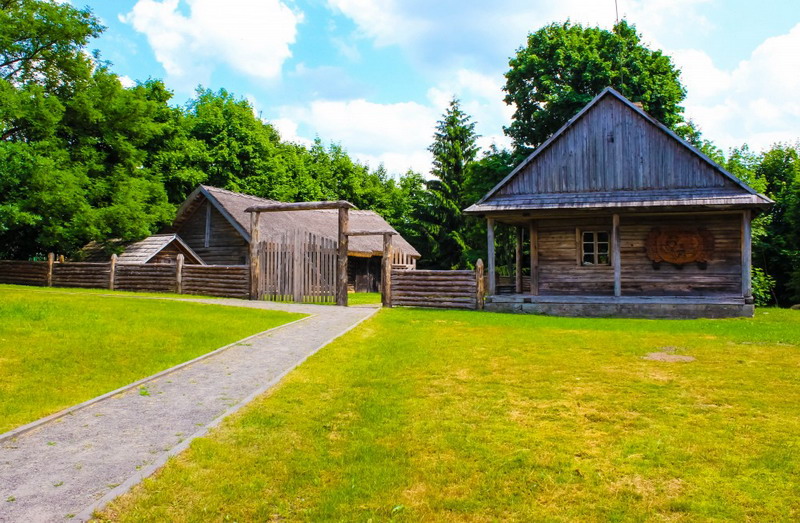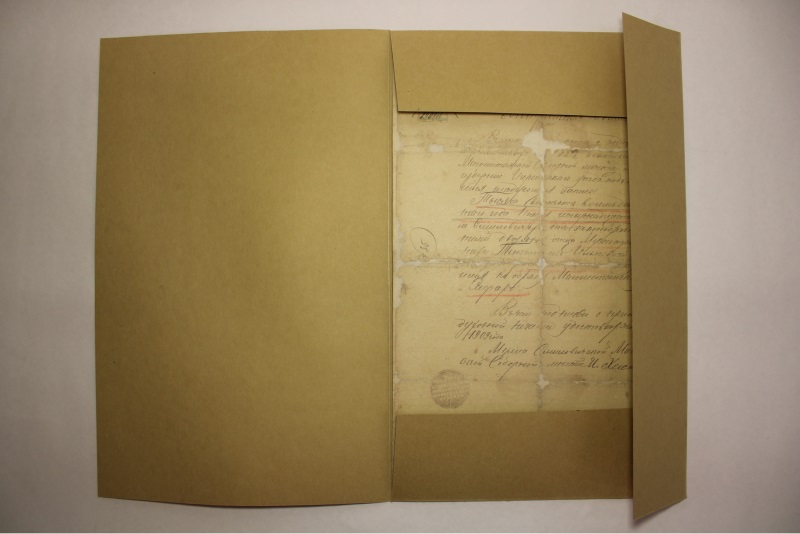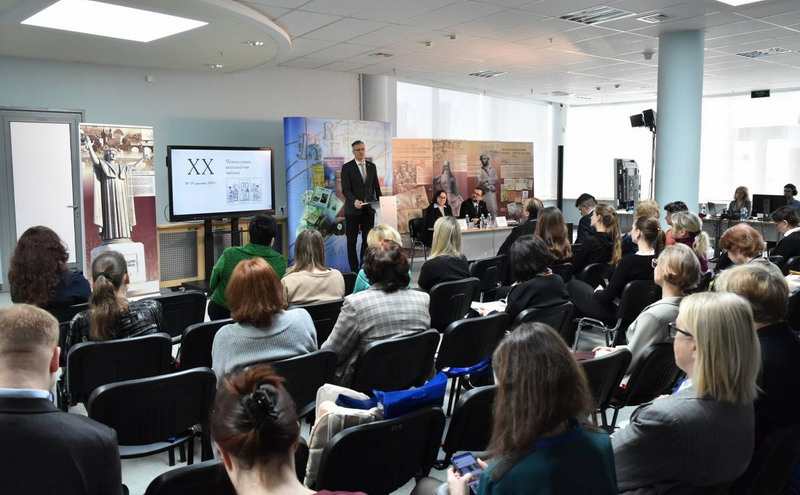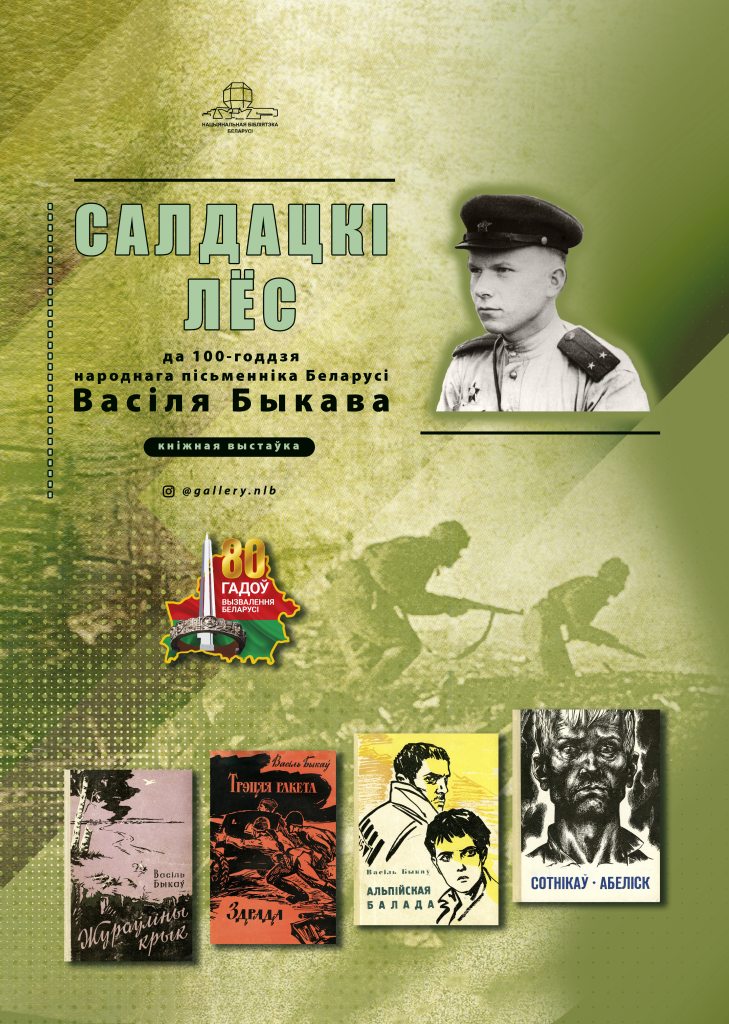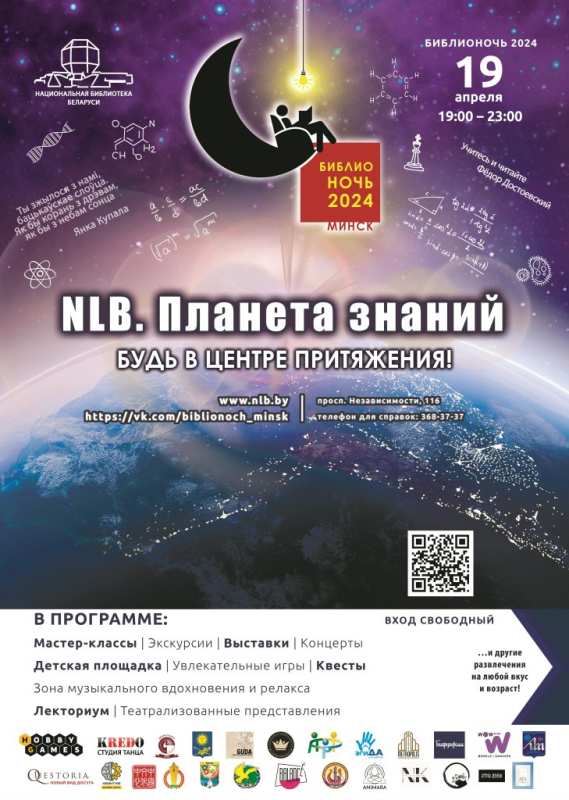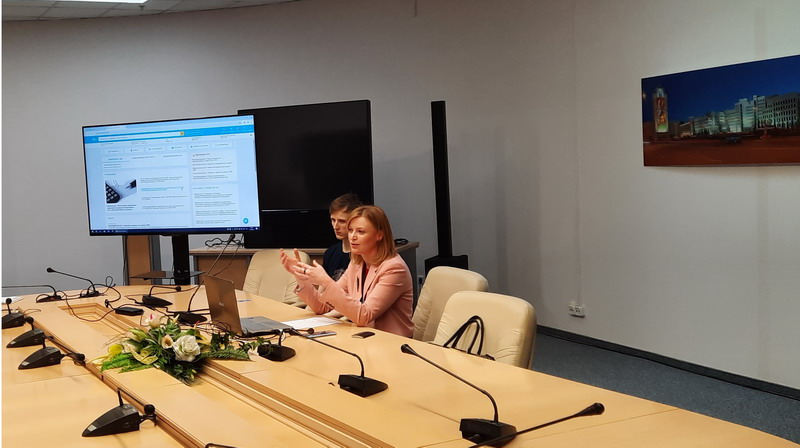The memorial estate in Akinchytsy, which is part of the State Literary and Memorial Museum of Yakub Kolas' branch "Nikolayevshchina", will celebrate its 40th anniversary on October 30, 2022.
Kanstantsin Mikhailovich Mitskievich was born in Akinchytsy (real name Yakub Kolas). Akinchytsy was once a dungeon (such villages were previously common, especially in woods poorly populated areas, these are 3-4 houses with outbuildings), then a village in Minsk County, and since 1977, they have been located inside the borders of the city of Stolbtsy.
The Akinchytsy forest, which has many plants designated in the Red Book, occupies a large tract near the Stolbtsy. The name Akinchytsy is derived from the name of the impoverished nobleman Akinchits, who was tasked by Knyaz Radziwill with safeguarding the forest's wealth. As a result, at the crossroads of the 18th and 19th centuries, a modest house (checkpoint) was built at the crossing of the old post route Minsk - Koidanovo - Novy Sverzhen - Nesvizh and the highway Stolbtsy - Akinchytsy - Nikolayevshchina. The forester's responsibilities included reviewing paperwork for timber taken from the forest. It was distinct from other peasant dwellings in that it had open sections with awnings along two walls (facing the road) for the convenience of reviewing documents in inclement weather. An inscription over the entrance gate read: "Akinchytsy woodland outpost".

Yakub Kolas' father has always worked as a forester. Mikhail (Michal) Mitskievich's family stayed in Akinchytsy, his very first location of service, for exactly two years (from April 1881 to April 1883). Konstantin Mitskievich, his son, was born on November 3, 1882, in the Mitskievich residence in Akinchytsy. When the boy was just five months old, his father was compelled to relocate to the Nikolaev woods. But, wherever his life paths took him, Yakub Kolas always returned to his homeland. The folk singer's finest feelings were triggered by Akinchytsy and other sites in the Stolbtsy. He never forgot where he was born: "When I got home, I went to Akinchytsy, which made me happy because there are a lot of white mushrooms growing there. I, too, want to see my "original corner." The house where I was born is no longer standing. As two drops of water, the same as the one where I was born, was created in its place..."
In 1956, three days after the enormous loss, the death of the Belarusian poet, the Central Committee of the Belarus Communist Party and the Council of Ministers of the BSSR issued the resolution "On perpetuating the memory of the people's poet of the BSSR Yakub Kolas". One of the points of this paper, which attested to the veneration of one of Belarus's outstanding writers, highlighted the necessity to establish the Yakub Kolas Literary Museum in Minsk, as well as a branch of the museum in the poet's hometown of Stolbtsy.

On December 4, 1959, the Yakub Kolas State Literary and Memorial Museum welcomed its first guests. Later, four branches of the museum were opened: Smolnya, Akinchytsy, Albut, Lastok. This was made possible by the work of D.K. Mitskievich, the eldest son of Yakub Kolas and the creator and first director of the great poet's museum, as well as his successors: G.A. Tkatsevich, Z.N. Komarovskaya, and others. The official opening of the first branch, Smolnya, took place on June 8, 1967. The writer's mother, Anna Yuryevna, his uncle Anton, sisters Mikhalina, Elena, Maria, and brothers Vladya, Mikhas, and Yuzik have lived on the Smolnya farm since 1910. On September 19, 1911, Konstantin Mikhailovich paid his first visit to Smolnya. Then he returned here several times (from 1911 to 1914), writing many short stories and working on the poems "Novaya Zyamlya" and "Symon the music".
It was on the Smolnya farm in August 1912 that Yakub Kolas first met Yanka Kupala. A key year was 1972, when the Central Committee of the Belarus Communist Party and the Council of Ministers of the BSSR passed another resolution creating the Kolas' reserve with a total area of 269 hectares in the Stolbtsy district. It brought together memorial locations associated with the poet's name in the Stolbtsy region, including territory adjacent to Smolnya, near Albuti, Lastka, and in the Bervenets tract. At the same time, there was a strong conviction that a memorial wing of the museum be established in Akinchytsy. The former head of the culture department of the Stolbtsy district Executive Committee, A. Grekov, and the former director of the Kolas' Museum, Z. Komarovskaya, are responsible for its conception and artistic concept. Unfortunately, not all of these plans have been implemented. So, for example, there was a proposal to establish a park in Akinchytsy, but after they started relocating people from Chernobyl-affected areas, buildings for immigrants were built here.

The forester's estate in Akinchytsy was restored in 1982 and opened to the public on October 30th honouring the 100th anniversary of the birth of Jakub Kolas. There is a memorial plaque with the inscription: "People's poet of Belarus Yakub Kolas (Konstantin Mikhailovich Mitskievich) was born here on November 3, 1882". Its interior was rebuilt based on the memories of poet's relatives, old-timers of Akinchytsy. As a result, everything in the house appears the same as it did when Mikhail and Anna Mitskievich lived here as small-scale peasants: a table covered with a tablecloth, a seat, a stove, pots, and many more belongings of a conscientious hostess and needlewoman. Kastus was rocked in a hanging cradle. There is a threshing floor, a cellar, and a well on the estate's property.
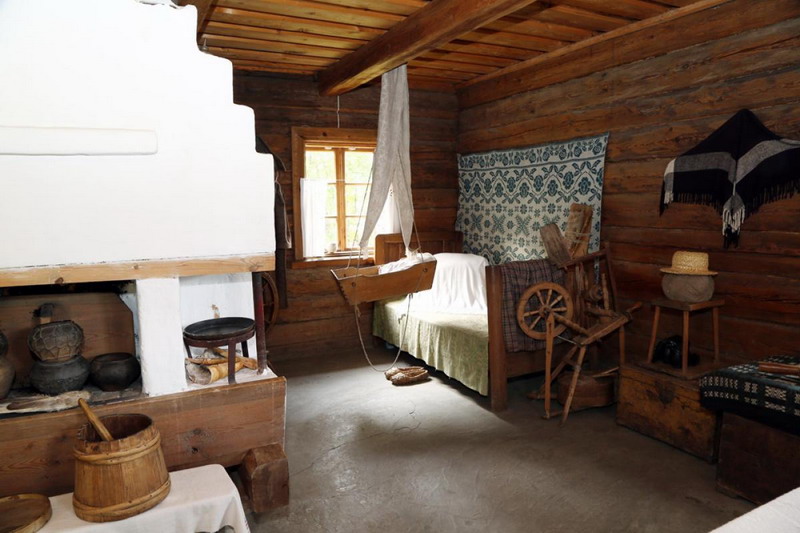
Once near the Akinchytsy house, the Catherine Highway began, now the Kolas’ Route originates from it. It was Akinchytsy that became the starting point of the trip to Kolas’ places. Their visit helps to feel and understand the work of the poet and writer well. There is an unbreakable eternal bond between the master of the word and the Stolbtsy area, which he poetized in several works. His native land has always been an inexhaustible source of inspiration for him. Despite the fact that Yakub Kolas did not have many opportunities to visit his homeland, his feelings about it never left him.
It has already become a good tradition to hold a large-scale holiday-conference “Kalasaviny” on the birthday of the Belarusian poet (November 3). The event usually includes a scientific forum as well as a number of cultural events. As a result, it is a requirement of the programme to visit memorial estates and places associated with the writer's fate. Every time writers, linguists, museum staff, scientists, and storytellers unveil fresh information about the life and work of the Belarusian classic. And it's always interesting to see what researchers will surprise you with at the next conference. The literary festivals of Stolbtsy: "Words about Kolas", the festival of young musicians "Symon-muzyka", festivals of singers, dancers, theater lovers "Tales of life", masters, plein-airs of young artists "Where Neman’s silver waters flow” and many others have also become traditional.
The web catalogue of the National Library of Belarus contains information about the Akinchytsy branch of the Yakub Kolas State Literary and Memorial Museum.
The article is created by the Bibliography research department.
Virtual project "Classics of world literature Yanka Kupala and Yakub Kolas"
